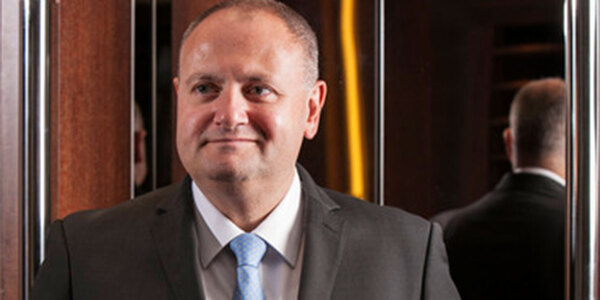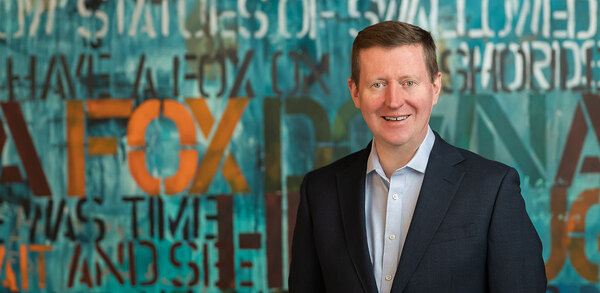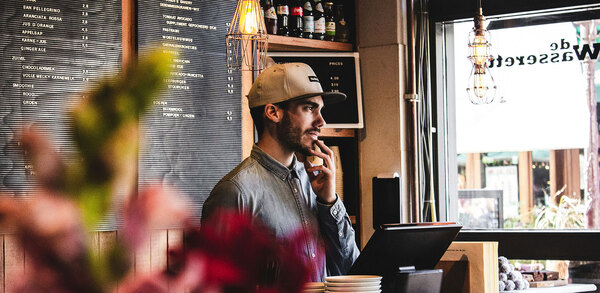Scottish Tourism Alliance: bed tax plans require national debate
A body representing tourism and hospitality businesses across Scotland has called for a national debate, after Scottish local authorities demanded the power to introduce a bed tax.
The Scottish Tourism Alliance (STA) Council was responding to calls from Cosla, which represents local government in Scotland, for the discretion to introduce a "transient visitor tax" earlier this week.
Cosla has launched a detailed document setting out its plans for the introduction of a tax, which it proposed would be collected as a percentage of accommodation or as a flat rate and could be progressive depending on the accommodation's star rating.
It pointed out that a number of European cities already charge such a tax, such as Lisbon and Prague (which charge per person per night) and Amsterdam and Berlin (which charge a proportion of the total accommodation fee paid).
Cosla president Alison Evison said: "We want to strengthen local democracy and promote local decision making, starting with giving councils the discretion to introduce a Transient Visitor Tax."
"What we are asking for today is not a national tax, but a tax that could be introduced locally if the circumstances are right and if councils in their own area think that it is the proper thing to do."
However the Scottish government has indicated that it will not legislate to grant powers to local authorities to introduce a bed tax.
A spokesperson said: "We have been consistent in our stance that given the potential impact on tourism, we have no plans to introduce a visitor levy on the tourism sector, which is already subject to the second-highest VAT rate in Europe by the UK government."
The STA welcomed the government's position, warning that high VAT rates in the UK presented challenges to the imposition of any additional tax, and said that any change to it should only be considered "in the light of an objective and well-informed national, rather than local debate, following conduct of independent research".
In a joint statement, endorsed by UKHospitality, the STA said: "While a tourism tax/visitor levy may work well for tourism businesses, destinations and local authorities in other global destinations where the level of VAT on tourism services is lower than that of the UK, the idea must be examined within the context of: the UK having the second highest VAT rate in Europe at 20%; the challenges which exist to the imposition of an additional tax; the impact on price-sensitive visitors and indeed the impact on businesses already coping with the ‘perfect storm' of rising costs that tourism businesses in Scotland currently face.
"We would also highlight that whilst the exchange rates are currently favourable for our international markets this may not persist beyond the short-term and the fact remains that around 60% of Scotland's tourism spend comes from our already squeezed domestic visitors. Any further tax or levy applied could seriously dilute this market."
The STA also warned that the UK is second from bottom in the World Economic Forum ranking (135/136) when measured solely on international tourism price-competitiveness, as compared to fifth in the world when the full range of international tourism indicators are included.
"This underlines that the introduction of a tourism tax or any such visitor levy would further reduce the competitiveness of our already heavily taxed sector relative to competitor destinations. Any new tax on tourists or the businesses serving them could ultimately have a potentially devastating long-term impact on Scotland's tourism industry and local economies which could lead to potential job losses," the STA said.
The debate over the introduction of a tax by local authorities in Scotland follows Edinburgh City Council's decision last month to push forward its own plan for an extra £1 charge on tourists staying in the city, which it said would generate around £11m a year.
The council, which is run by an SNP-Labour coalition, wants to use the additional money to fund areas where tourism puts pressure on the city's infrastructure.
The attempts to introduce a bed tax in Scotland mirror several past attempts in England. In February this year, a report recommended that Liverpool should pilot a hotel bed tax to support culture and tourism in the city, while an independent report by the London Finance Commission last year also proposed similar plans for the capital. Mayor of London Sadiq Khan expressed support for the idea, although powers to introduce a bed tax currently rest with central government.
Viewpoint: Hotel bed taxes could backfire >>
BHA blasts London bed tax talks >>
BHA calls Sadiq Khan's proposal for London bed tax an ‘absolute folly' >>
















